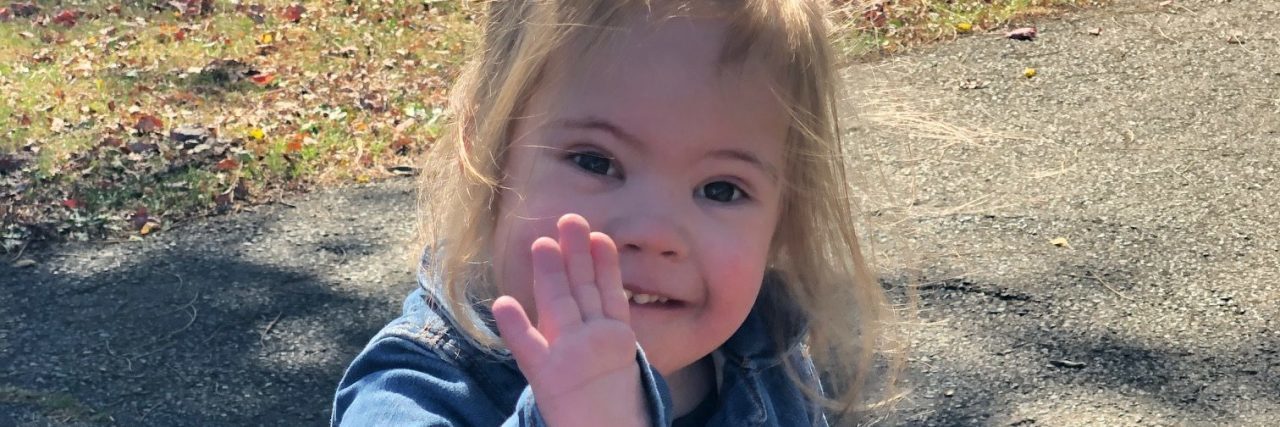Whenever we meet families with older children who have Down syndrome, there is always one common thread among them — they’re calm. They have as many, if not more, mountains to climb, such as puberty (heaven help me), a widening gap in chronological and developmental ages among peers, life skills readiness, and probably dozens of other challenges they’ve shielded us younger families from learning about just yet.
But their refrain is consistent: She will get there.
I politely nod my head in agreement, acknowledge my certainty that “she will get there” (wherever “there” may be), and move on. Sometimes I share the name of my blog, At Her Own Pace, to assert my understanding that my daughter will learn at her own pace and that we are just fine with her progress and the path she’s taking toward wherever she is headed. And all of this is true from the deepest reaches of my heart.
However, there are other times when I truly do wonder. Will my baby girl live independently one day? Will she get married? Will she be able to have a job, earn a wage and not require her mom and dad to intervene for accommodations? This doesn’t mean I doubt her potential, it just means that we are on a different path than we would be if society were more sensitively crafted to treat human beings like human beings and not as abled or disabled.
Just like the families with older children with Down syndrome share a similar refrain, so do many well-meaning families without any physical or developmental disabilities. We all experience the same worries and concerns as parents, don’t we? On one level, I agree with that. We do all worry about how our children will adjust to a new school, wonder if our toddlers will ever willingly bite into a green food ever again, dread the first time our child proves to be braver than their parents, and question whether we’ve chosen the best community where our little ones can thrive through adolescence. But the missing piece is something nearly inconceivable to many parents of neurotypical children, and that is the implications of everyday patterns; independent living, marriage and employment are going to take a lot of effort to achieve.
I’ve always said my daughter works twice as hard as her typical peers for half the payout. She’s been in therapy since she was 4 months old (a late start compared with other infants with Down syndrome as she prepared for and recovered from her open heart surgery). She’s had a rigorous schedule of appointments; she undergoes tests for both screenings and diagnoses, plus surgeries for Down syndrome health-related complications. Through all of this she has a speech delay and she’s frustrated. And she works through it. Although I don’t think she’s an actual angel, she sure knows how to act like one.
I try to see the world through my daughter’s gorgeous eyes — the view that the world is fun, that silliness always wins out over stoicism, that emotions should be honestly expressed anywhere and anytime without restraint — but I often fail. I’m on guard, finding myself unexpectedly faced with discriminatory language against my daughter for her diagnosis on a good day, and poorly concealed discrimination on a bad one. Friendships are falling by the wayside. I’ve developed serious trust issues with anyone caring for her and am overwhelmed with gratitude when she is well taken care of by someone outside of our family.
Earlier this week, my almost-4-year-old said, “I love you” for the first time. She’s sung the words “I love you” before and for some time now has been able to repeat the words one by one as we ask her to imitate our speech. But hearing her speak a three-word phrase, and that very special one to boot, refocused my often blurry lens as I try to see into an uncertain future.
I’m feeling calmer. I know her skills will come, and I’m not simply repeating the refrain of families with Down syndrome who came before us. I really can feel it. If only I knew how to help everyone in our community feel it, too.

